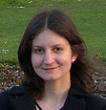AbstractReflection has proven to be a valuable asset for programming languages, especially object-oriented ones, by promoting adaptability and extensibility of programs. With more and more applications exceeding the boundary of a single address space, reflection comes in very handy for instance for performing conformance tests dynamically. The precise incentives and thus mechanisms for reflection vary strongly between its incarnations, depending on the semantics of the considered programming language, the architecture of its runtime environment, safety and security concerns, etc. Another strongly influential factor is legacy, i.e., the point in time at which the corresponding reflection mechanisms are added to the language. This parameter tends to dictate the feasible breadth of the features offered by an implementation of reflection. This paper describes a pragmatic approach to reflection, consisting in adding introspection to an existing object-oriented programming language a posteriori, i.e., without extending the programming language, compiler, or runtime environment in any specific manner. The approach consists in a pre-compiler generating specific code for types which are to be made introspectable, and an API through which this code is accessed. We present two variants of our approach, namely a homogeneous approach (for type systems with a universal root type) and a heterogeneous approach (without universal root type), and the corresponding generators. We discuss limitations such as infinite recursion, and compare the code generated with these two approaches by Erl-G, a reflection library generator for the Eiffel programming language, thereby quantifying the benefits of a universal root type. Erl-G is being used by several tools for development in Eiffel. Note: Due to the typographical sophistication of this article, no HTML version is available. Please use the PDF version. About the authors
Cite this document as follows: Andreas Leitner, Patrick Eugster, Manuel Oriol, Ilinca Ciupa: "Reflecting on an Existing Programming Language", in Journal of Object Technology, vol. 6, no. 9, Special Issue: TOOLS EUROPE 2007, October 2007, pages 319-339, http://www.jot.fm/issues/issue_2007_10/paper16/ |
||||||||||||||||



